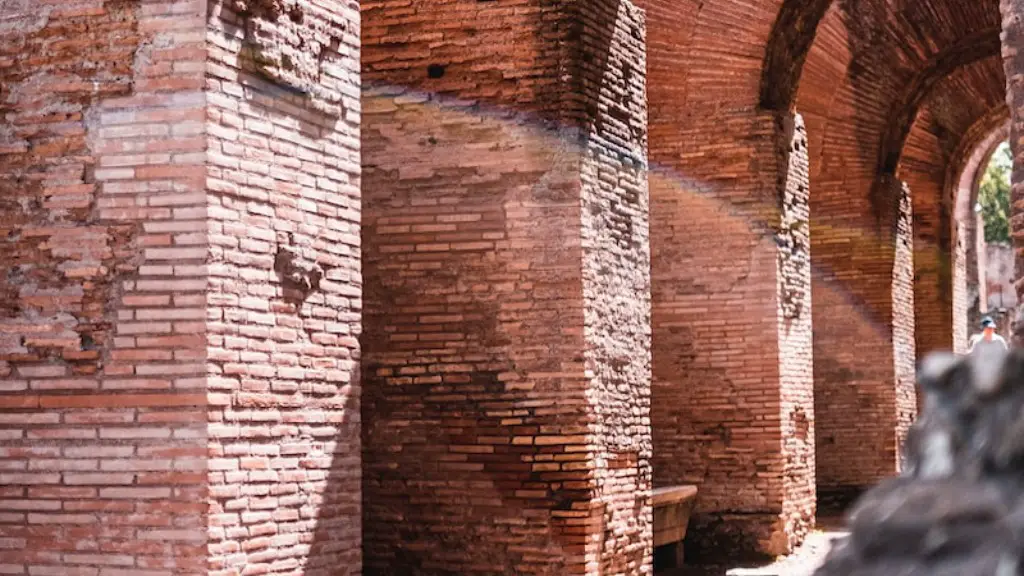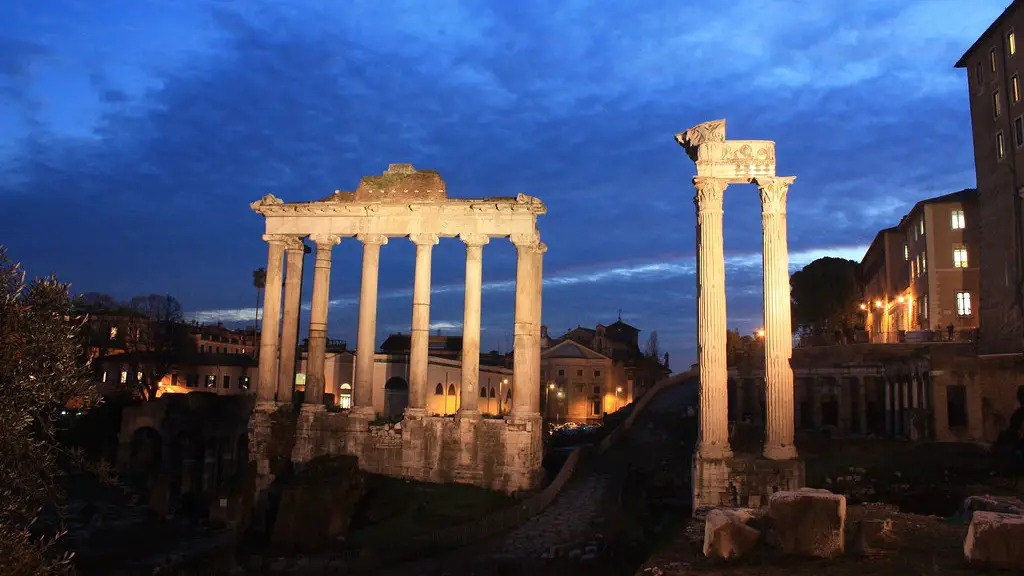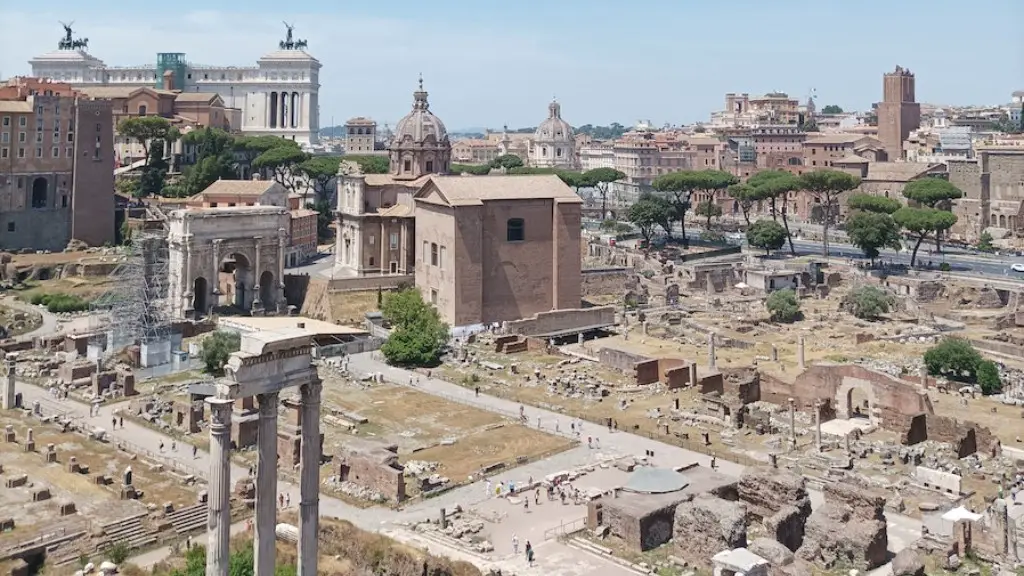Was the Tribune a Power to be Reckoned with in Ancient Rome?
In Ancient Rome, a tribune was an assembly official called a “tribunus plebis” who offered a kind of protection to the Roman commoners, or plebes, and defended them against the orders of Rome’s Senate and other patrician authorities. This offered members of the lower class, such as peasants, peasants’ children, freed slaves, and merchants, a chance to part-take in Rome’s politics and social life without interference from patrician elites. As a result, the tribune became a very important figure in Ancient Rome, with strong rights and privileges, and a powerful role to play in government.
The tribune was theoretically elected by the citizens upon the recommendation of the consuls, but actual election was often a formality and in reality, tribunes were usually nominated by powerful politicians or otherwise influential figures. It was the duty of a tribune to protect the rights of the plebes, and they had the right to veto most laws issued by the Senate and other authorities. This was a sure way of ensuring that the plebes’ rights would not be violated and their voices would be heard.
Tribunes also had the right to summon and preside over meetings, create policies regarding the rights of the plebes, punish certain crimes and abuses of the elite, and change the membership of the Senate. In the case of a conflict between the Senate and the people, the tribunes were expected to take up the role of intermediaries and negotiate a compromise between the two parties. In addition, the tribunes also had jurisdiction over cases involving slaves, women and children, effectively empowering the latter in a way that had never been seen before.
What further enhanced the tribune’s power was its religious importance. The tribunes were regarded as sacred “servants of the people” who were charged with protecting the maintenance of peace and order in society. As such, it was believed that the tribune’s power was divinely inspired, something which allowed them to manipulate public opinion in their favor and increase their influence in government. As a result, the government officials of the Late Republic soon found that the tribune could potentially counter the Senate’s power by acting against any laws that were considered unfair to the people.
Seduction of the Power of the Tribune
Though the tribune had the power to veto laws, they could not pass their own laws. This did not stop ambitious politicians such as Julius Caesar, who saw the tribune as a way to further their own ambitions. Caesar was elected tribune in 59 BC and used his position to further his political goals, ultimately leading to the end of the Roman Republic and the beginning of the Roman Empire.
The use of the tribune as a tool of power made it a highly sought-after office and saw the emergence of “tribune factions” who used the tribune office to gain power and try to establish the rule of law. It also saw the emergence of “tribune-like” offices, such as the aedile, which were created to counter the influence of the former.
Though the tribune continued to enjoy a great amount of power well into the Roman Empire, its importance began to wane after: Emperor Augustus passed a law limiting the tribune’s power, and President Tiberius moved to limit the office to a mere figurehead. Emperor Nero abolished the tribune during his rule, thus leading to its complete disappearance from Roman politics by the end of the first century AD.
The Social Impact of the Tribune
Apart from its political importance, the tribune also had a strong social impact on the Roman Republic. It provided an opportunity for the plebes to participate in political life and protected them against the oppression of the patrician elites. This allowed the plebes to exercise their rights, seek protection and play a role in politics and civic life.
At the same time, the existence of the tribune challenged the very idea of the Roman Republic by showing that the people could not be solely ruled by the patrician class. This eventually led to a constitutional crisis, which began after Julius Caesar was elected tribune and triggered a series of events that eventually led to the end of the Republic and the emergence of the Roman Empire.
The Symbolic Significance of the Tribune
The tribune has had a lasting impact on the Western world, with its legacy continuing even today. It has been seen as a symbol of justice and liberty, with popular culture depicting the tribune as an individual who stands up for the oppressed and speaks out against the tyranny of the privileged.
The tribune also stands for the concept of democracy, as it provided a way for the lower classes to participate in politics and have their voices heard. This has been a source of inspiration for many countries, who have sought to replicate the tribune system in their own government and make it a part of their own cultures and constitutions.
Economics and Politics of the Tribune
The tribune was not only a powerful political figure, but also had an important economic role. The tribune had the right to interfere in the economic affairs of Rome and ensure fairer trade practices in the Mediterranean region. This allowed them to protect the plebes from economic exploitation, as well as regulate foreign trade and control the activities of merchants and bankers.
Furthermore, the tribune was also responsible for the organization of the grain supply in Rome. This was especially important during times of famine, as the tribune had the power to ration grain and ensure that the plebes would not starve. Furthermore, the tribune was also responsible for setting prices for basic commodities and thus safeguarding fair prices for the plebes.
The Rise and Fall of the Tribune’s Influence
The tribune played a key role in government during the later Roman Republic, allowing the plebes and other members of the lower class to take part in politics, while also serving as a safeguard against the patrician elite. Despite this important role, the power of the tribune declined over time and it eventually disappeared by the first century AD.
However, its legacy still lives on today, as the importance of democracy and the right of the people to be heard is still seen all over the world. The tribune has also been seen as an inspirational symbol of courage and justice, inspiring many countries to adopt its principles and use them to create their own governments.
Modern Day Applications of the Tribune’s Ideas
The ideas of the tribune have also been adopted by many countries in modern times as a way to provide a check against the power of the ruling elites. For example, in the United States, the president’s veto power has been seen as a modern equivalent of the tribune’s right to veto law. Furthermore, many countries have adopted the use of constitutional review as a way to prevent unfair laws from being passed by the legislature.
In addition, many countries have created citizen’s rights bodies, such as human rights commissions, which have a responsibility to protect vulnerable members of society from abuse and exploitation. This is seen as a modern incarnation of the tribune’s role in protecting the people from unfair laws and enforcing the rights of all citizens, regardless of status or wealth.
Examining the Long-Term Impact of the Tribune
The concept of the tribune has had a lasting influence on the Western world, with its legacy still being seen today. It is seen as a symbol of justice and liberty, and its principles have been adopted by many countries and incorporated into their constitutions. In addition, the tribune’s role in protecting the rights of the people and providing a check against the power of the elite still resonates with many countries, and is seen as a source of inspiration for democratic governments.


